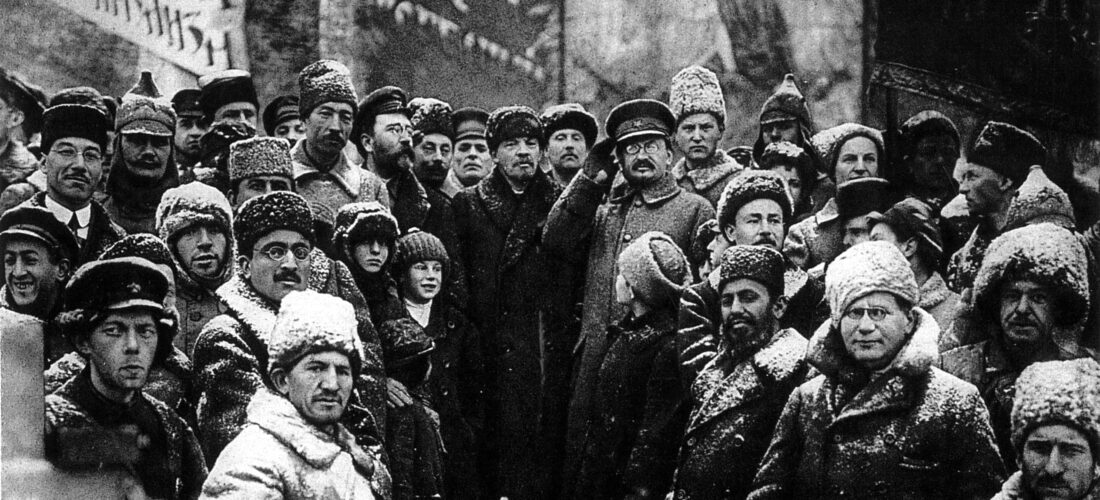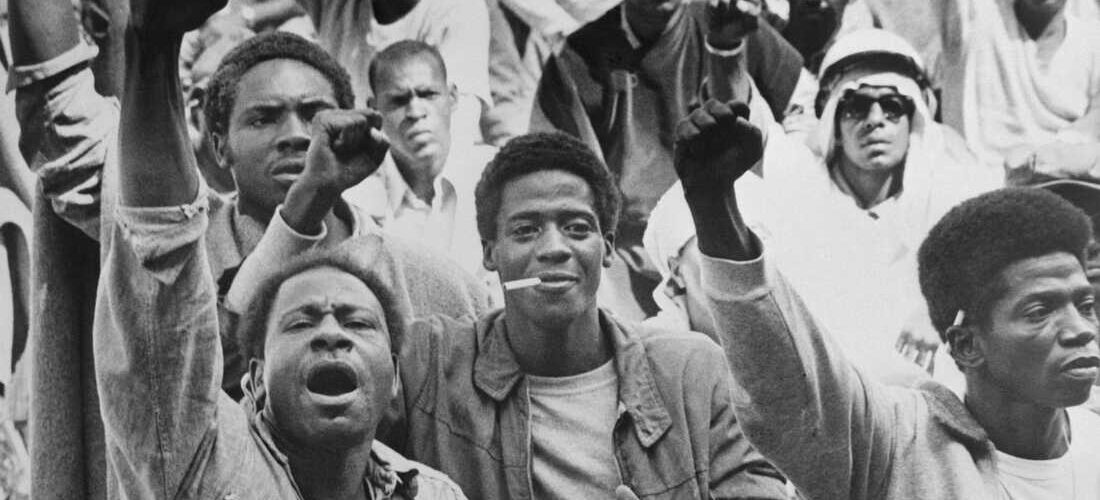This translated text explores the concept of “communization” as a revolutionary strategy, contrasting it with what it labels “programmatism,” the earlier 20th-century approach focused on the proletariat seizing state power. The source argues that programmatism, which aimed to manage the means of production, ultimately failed because it did not challenge the core of capitalist exploitation: the law of value and commodity production. Instead, communization proposes the immediate abolition of capitalist categories like value, wage labor, and social divisions through the self-negation of the proletariat. The authors suggest that the failure of past revolutionary attempts and the restructuring of capitalism in the 1970s necessitate this new approach, one that emphasizes practical, non-commodified actions over predetermined programs or theories.
revolution
Prisoners in Revolution – Roger Boberg, Jaan Laaman, John Yancey, and Richard Williams (1975)
1946-1989, Authority, Date, Defining the Enemy, Disruptive Spaces, Imperialism, Institutions, Sabotage/Ecotage, Self Institution, Strike, Subjectives of Refusal, Subjects Redefined, Tactics of DisruptionThis statement, written by revolutionary prisoners at New Hampshire State Prison in 1975, serves as a response and further discussion of the Weather Underground’s “Prairie Fire”, aiming to provide a deeper examination of the experiences of prisoners and ex-prisoners. The statement argues the experiences of prisoners provide a unique perspective on the need for revolution against the capitalist system and the development of methods of control like behavior modification, stressing the importance of unity and solidarity within and outside of prison walls for the larger anti-imperialist movement. It contends that the prison movement is an integral part of the revolutionary struggle, showcasing how conditions of captivity, similar to wartime, expose the naked injustice and terror of American society and breed a determined, militant cutting edge for the overall People’s Struggle.
The Young Lord’s Trip to Puerto Rico
1946-1989, Date, Defining the Enemy, History, History/Theory, Imperialism, Latino, Subjectives of Refusal, White SupremacyIn December of 1970, Gloria Gonzales and Denise Oliver took a ten day trip to Puerto Rico. Their experiences, written in a newspaper article, underline the destructive impacts that western colonialism, specially from America, has on Puerto Rican communities. Oliver describes the psychological impact of colonialism and its devastating impact on young Puerto Rican populations. Oliver rejects the influence of western supremacy on the island, and advocates for a independent Puerto Rico.
Address to All Workers – ENRAGÉ-SITUATIONIST INTERNATIONAL COMMITTEE (1968)
1946-1989, Authority, Blockade/Barricade, Date, Defining the Enemy, Disruptive Spaces, Institutions, Occupation, Privatization, Strike, Subjectives of Refusal, Subjects Redefined, Tactics of Disruption, The Bourgeoisie, The Workplace, Urban SpacesParis, France, beginning in May of 1968, was a city filled with general strikes, demonstrations, and occupations of universities and factories by students and workers. In this piece, the Enragé-Situationist International Committee Council for Maintaining the Occupations calls for the creation of workers councils as the solution to gain working-class autonomy in the proletariat revolutionary project. They reflect on the way in which their occupation of factories and public buildings has brought the economy to a halt and led to a widespread questioning of society, calling on the international proletariat to join in the fight for this transformation.
“This is the beginning of a revolutionary movement, a movement which lacks nothing but the consciousness of what it has already done in order to triumph.”



